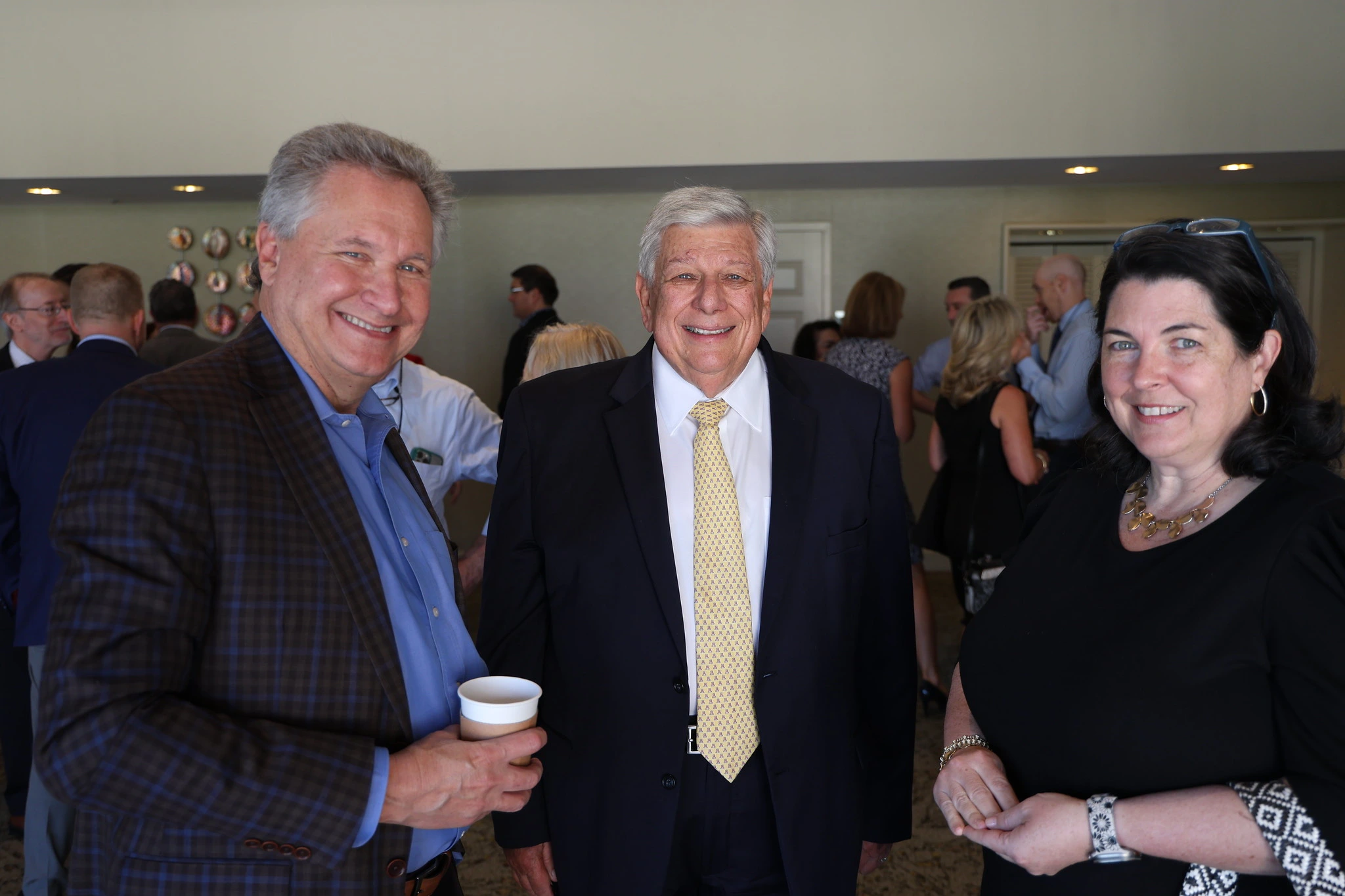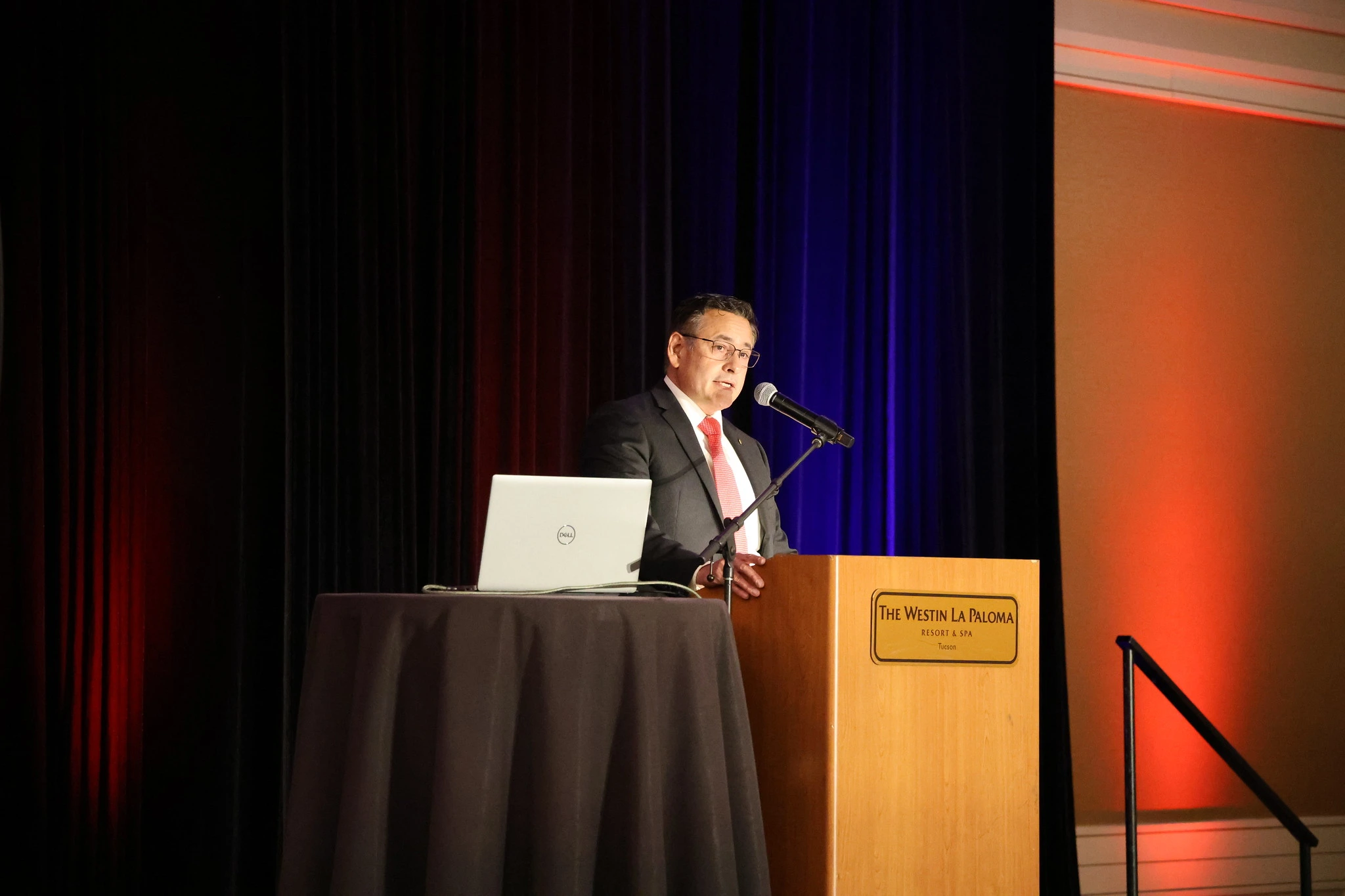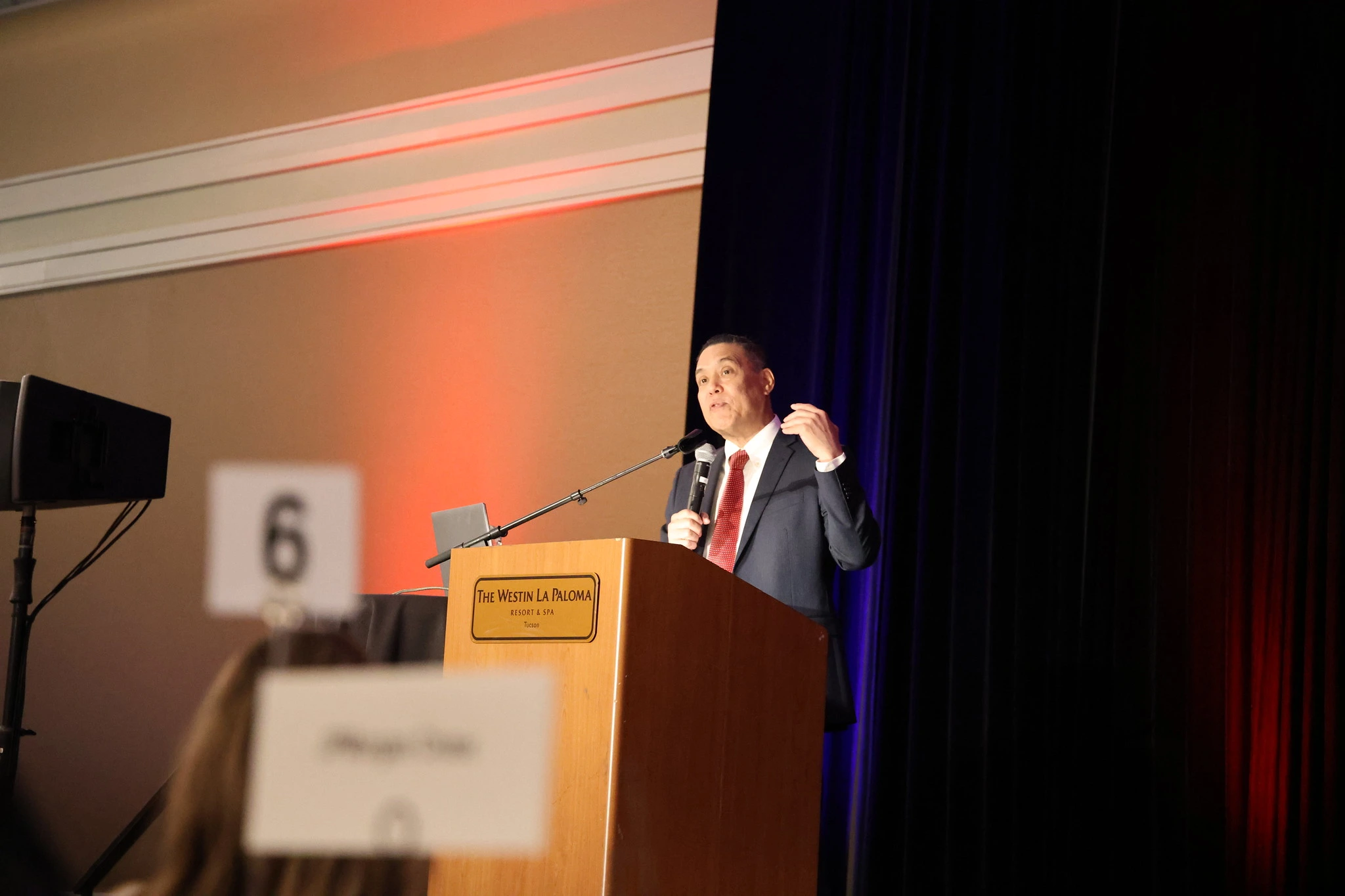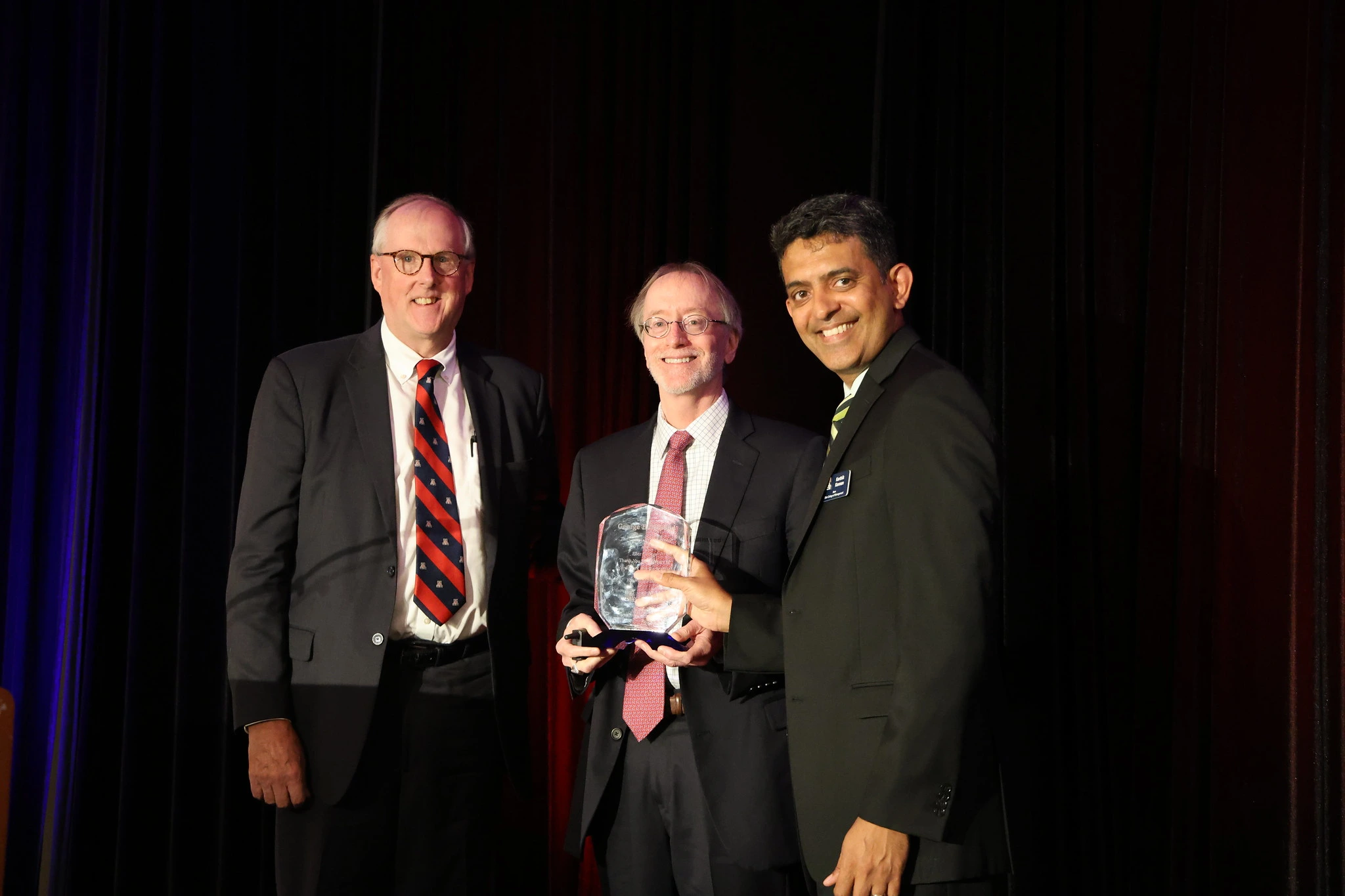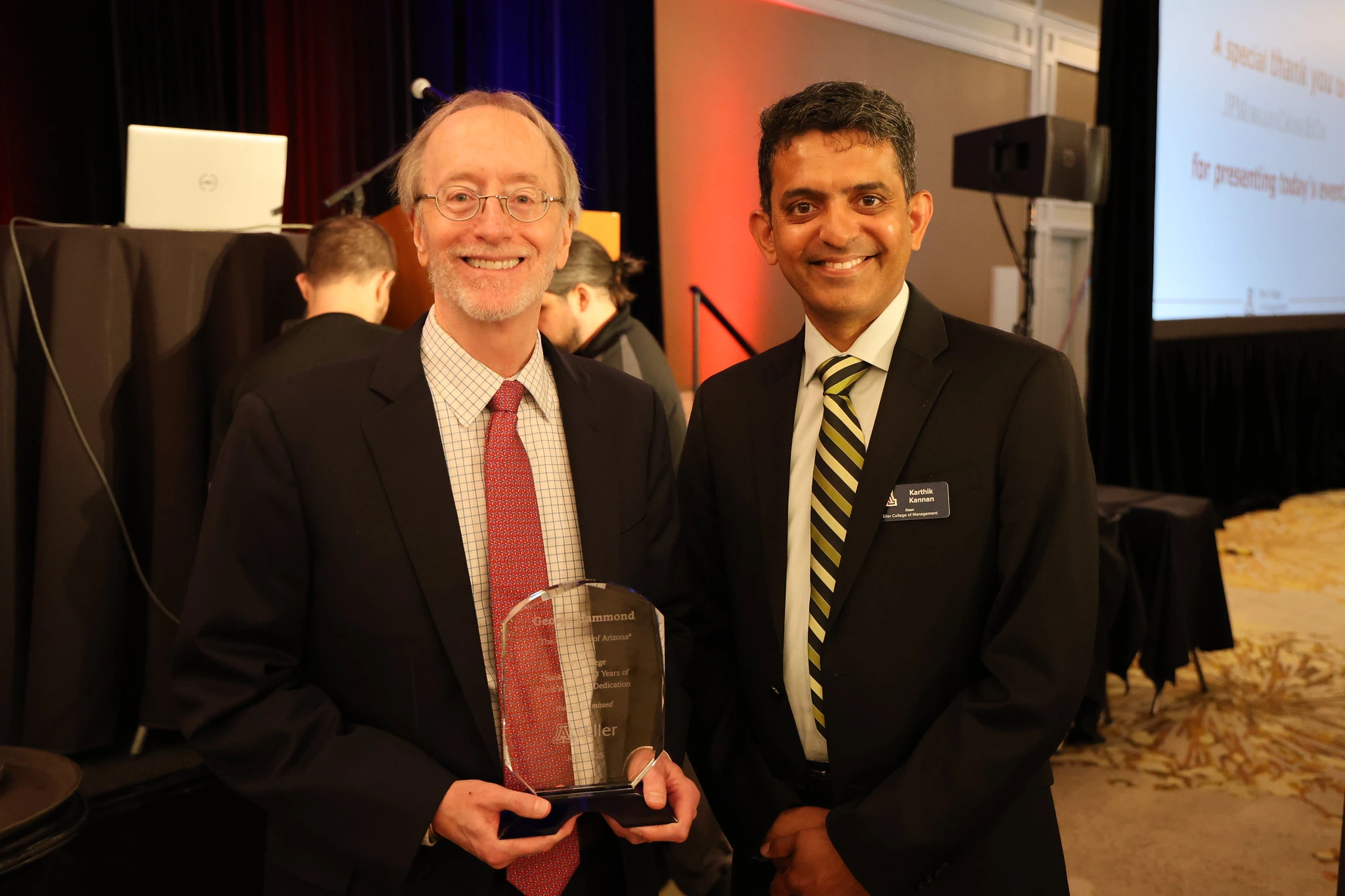2025 Breakfast with the Economists
EBRC Hosts Annual Breakfast with the Economists at La Paloma
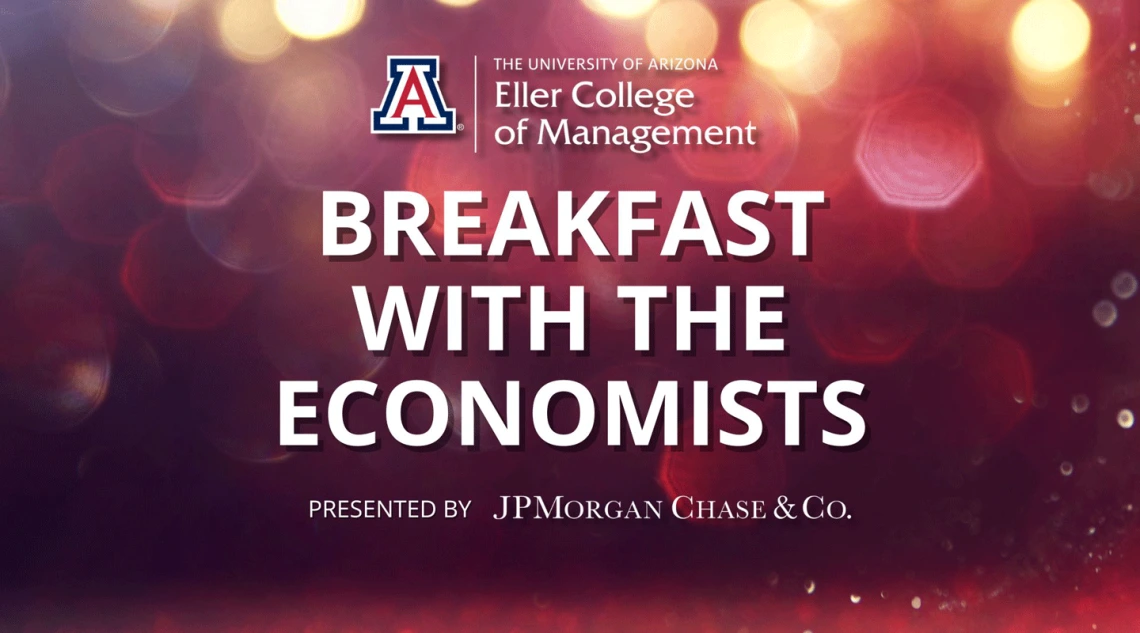
The University of Arizona's Eller College of Management Economic and Business Research Center (EBRC) held its annual Breakfast with Economists event today at the Westin La Paloma Resort in Tucson. The Chase-sponsored morning gathering brought together business leaders and community members to hear expert analysis on economic trends affecting Arizona and the nation.
EBRC Director George Hammond presented findings on Arizona's economic performance, revealing that state job growth was revised down significantly for 2024, dropping from an initial estimate of 2.1% to just 1.3% - matching the national average rather than outpacing it as Arizona typically does. This represented a dramatic slowdown from the 2.8% growth rate Arizona experienced in 2023. During the event, Eller College Dean Karthik Kannan presented Hammond with an award recognizing his 13 years of dedication to the college.
The Tucson metropolitan area lost approximately 2,000 jobs on net in 2024, with heavy losses in professional and business services, though gains occurred in private education and health services, construction, and government sectors. Despite job losses, Tucson's unemployment rate remained stable, indicating a tight labor market.
Hammond highlighted ongoing housing affordability challenges, noting that median households in Tucson spend 45.3% of their income on mortgage payments while Phoenix residents face 47.5% - both well above the recommended 30% threshold. Phoenix median home prices fell 1.1% to $445,000 while Tucson prices dropped 1.6% to $368,000 in April.
Anthony Chan, former Chief Economist at JPMorgan Chase, emphasized that current trade policy represents one of the most volatile periods in decades. "Tariff policy is not just changing every quarter, but sometimes every month and sometimes almost daily," Chan noted. Global trade uncertainty has reached its highest level since the IMF began tracking such statistics, causing corporate CEOs to postpone major investments.
Both economists identified policy uncertainty around tariffs, immigration, and federal spending as key factors slowing growth. Hammond explained that "consumers and businesses hold back on major purchases when they're unsure" about future policies. Despite near-term challenges, Hammond forecasts Arizona will return to normal growth patterns by 2026, with healthcare and manufacturing leading Tucson's recovery.
The event highlighted how federal policy decisions create ripple effects reaching communities across Arizona. While recession risks have increased due to policy uncertainty, the baseline forecast assumes the economy will avoid a significant downturn.
For detailed charts and data from today's presentations: 2025 Breakfast with Economists Slides in PDF



